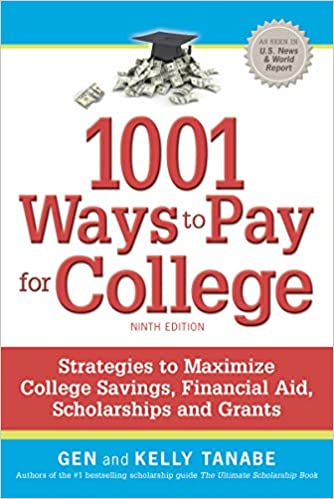8
Qualify for in-state tuition discounts.
If you're hoping to keep your child close to home a little while longer, here is a financial incentive: All students who attend a public college in their home state receive an in-state tuition discount. In-state tuition can be significantly less than out-of-state tuition. On the other hand, if your child is anxious to cut loose and move away, or just prefers a college elsewhere, you are not automatically stuck with paying the premium charge for nonresidents.
Ask the college about the process for being considered a state resident. While some states make this difficult, others make it as easy as getting a driver's license. Most states have different requirements for residency as it applies to paying in-state tuition and residency related to paying state taxes, so make sure that you know how it works in the state where your student wants to attend college. Even if your child cannot get residency status immediately, there may be other ways to cut tuition prices, including reciprocity agreements, tuition waivers and nonresident scholarships.
9
Check into reciprocity agreements.
You may be able to avoid out-of-state tuition rates in a neighboring state through good will programs known as reciprocity agreements. These pacts between states offer each other's residents discounted or in-state tuition rates.
The Western Undergraduate Exchange provides reduced tuition rates for students in 15 western states. Through this program, residents of participating states are eligible for scholarships that allow them to pay 150 percent of the in-state tuition rate, which is a huge savings over the standard nonresident rate. Similarly, Minnesota, North Dakota, South Dakota and Wisconsin have a reciprocity agreement that reduces or eliminates nonresident fees for students who live in any of the four states. The Midwest Student Exchange provides discounts of at least 10 percent at participating community colleges, colleges or universities in Kansas, Michigan, Minnesota, Missouri, Nebraska and North Dakota. The chances are good that your child can find a reciprocity agreement to help him or her attend a public school in a neighboring state.
10
Get in-state tuition waivers and nonresident scholarships.
If you are not able to take advantage of a reciprocity agreement, you may be able to save on tuition with an in-state tuition waiver. These are usually based on academic records, scholarships won and special circumstances. Some colleges grant a limited number of these waivers, which provide discounted tuition to out-of-state students. In applying for any tuition waiver, your child should explain his or her academic record and describe the family's financial situation.
Some colleges have scholarships specifically designed for nonresident students. For example, the University of Arkansas offers nonresident tuition awards for students from the neighboring states of Texas, Mississippi, Louisiana, Kansas, Missouri, Oklahoma and Tennessee.
Going to college out of state does not mean that you will automatically be obligated to pay more. As these programs illustrate, out-of-state students can sometimes be eligible for in-state tuition rates.
You won't know how a college can help if you don't ask. Be sure to contact the financial aid office and ask about every one of these options listed in this guide. One of our favorite stories is about a family that encountered extremely tough financial times while their daughter was in college. After talking unsuccessfully to financial advisors and bank loan officers, they were ready to give up and pull their daughter out of school because they could not afford the tuition. On a whim, they contacted the financial aid office. To their surprise, the office was more than happy to extend an emergency loan that helped them get through the crisis. Sure, colleges have to send tuition bills, but they can be extremely helpful as long as you are willing to do a little digging and ask the right questions.



